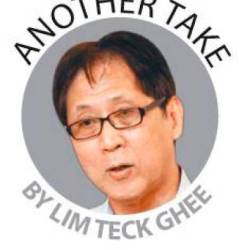OBSERVERS of the political scene must be wondering what is happening with the DAP since its key role in the Pakatan Harapan’s watershed victory in GE14.
Before the election, few will disagree with the viewpoint that the DAP has been the leading force in the opposition for over 40 years since its establishment in 1967.
According to its constitution, the party is committed to “a free, democratic and socialist Malaysia, based on the principles of racial and religious equality, social and economic justice, and founded on the institution of parliamentary democracy”.
The pursuit of racial and religious equality and justice for all Malaysians embedded in the party’s call for a Malaysian Malaysia has been likened by “pragmatic” analysts as akin to a political death wish or an impossible dream.
This is because in a country with an increasingly superior demographic and assertive Malay Muslim population, conventional wisdom is that a party fighting for the equal rights of Malaysians – especially with the advent of the New Economic Policy which has polarised the people emphatically into racial categories – is doomed to failure. Or the other wisdom that any party that has a largely Chinese base would have at best a minor position in the political arena.
However the impossible happened. Today the DAP has the second largest number of MPs in the 222-member Dewan Rakyat. It is a partner in eight of 13 states that have Pakatan governments.
While this time in its history sees it at the zenith of its political power, it seems a paradox that the short period of 16 months since May 2018 has seen the party not only unable to consolidate its position but instead hurtle on a downward spiral.
Almost all commentators agree that the DAP has lost considerable support among voters. In GE14 the party secured over 2.1 million votes out of the 5.5 million votes cast for Pakatan. Although PKR won more seats (47 to the DAP’s 42) it had fewer voters (2.05 million). By way of comparison, Umno had 2.5 million votes while PAS had 2 million votes.
Following the controversy over the introduction of khat in vernacular schools and other setbacks to reforms aimed at fairer educational policies, the party adviser, Lim Kit Siang has warned that “DAP would be defeated in the Iskandar Puteri parliamentary seat and would lose 30-40% of our votes in the country if an election were held now.”
A key reason for the loss in popular support for the DAP is due to its position in a stuttering fragile coalition which has under-performed on many fronts. But much of the damage has been self-inflicted.
Wrongly reading the political mood of the country or perhaps hoping to divert public opinion from its lacklustre post-election performance, the incessant targeting of the former prime minister and the endless playing of the “kleptocracy” record has become a disaster.
No party will be able to hold on to power for any length of time simply by pointing out the sins of the opposition and repeating the same refrain ad infinitum.
It is what the party itself does in the way of fulfilling election promises and meeting the expectations of the electorate through improvements in the major areas of public concern that can provide the winning edge in the coming election.
In meeting expectations the DAP should not have to surrender its centre-left credentials or move away from an ideology embracing social democracy, liberalism, democratic socialism, localism and green politics.
Other countries including some Islamic nations are finding that repulsing the right wing and conservative forces and coping with the new challenges of rapid socio-economic and environmental change and disruption requires not a change in political direction but the breathing in of renewed idealism and new leadership into the moderate position promoting social justice and equality.
This is the optimistic scenario for Malaysia.
However, for the foreseeable future, the DAP should expect that racial and religious politics will not lessen; rather their advocates will grow louder and continue to focus on the party as the enemy to take down as they have done in the past.
To counter this, the party needs to think out of the box in empowering its non-Chinese leadership and allies in Sabah and Sarawak and ensuring a more multiracial composition of young idealistic candidates for the next election. So long as the majority electorate sees it as a Chinese-led party, it will remain handicapped in the electoral battle regardless of the agenda it is promoting.
This move – perhaps more than any other factor – may make the difference in helping the party counter the emphasis on racial and religious issues that can be expected from the latest Umno-PAS “ummah” unification.
The DAP should also expect now that it is in power for every project initiative it undertakes to be scrutinised to see if it lives fully by the competency, accountability and transparency (CAT) principles it has sworn by to ensure good and incorruptible governance.
With billions of ringgit of project funding now under its direct control in Penang and other states where Pakatan holds power, some critics have expressed concern that the DAP is now the new “towkay” party following the footsteps of the MCA which had focused on enriching its leadership and supporters.
The dispensation of patronage and embrace of crony capitalism has long been an integral part of Malaysian political life. Keeping itself and its coalition partners on the straight and narrow in managing the financial affairs of the country may well also make a difference to our more demanding electorate that does not want a return of the corrupt and self-enrichment ways of the old regime.
Comments: letters@thesundaily.com














